

In Toronto’s pedestrian-only Distillery District the continent’s best-preserved collection of Victorian industrial architecture has been brilliantly restored. The district offers visitors a glimpse into the 19th century amongst modern-day boutiques, art galleries and restaurants. Like Chelsea Market in New York City, Toronto’s Distillery District is a great example of adaptive reuse.
Located just east of the city’s downtown area, the Distillery District was once home to Gooderham & Worts, the largest distillery in the British Empire. First established as a grist mill in the 1830s by brothers-in-law James Worts and William Gooderham, the district was soon expanded with the construction of over 40 buildings designed to distill whisky, beer and other spirits. During its heyday in the 1870s, the Gooderham & Worts distillery produced seven million liters of whisky and spirits a year. Exports were shipped as far as Montreal, New York, Rio de Janeiro, Buenos Aires, Montevideo and other ports in South America.
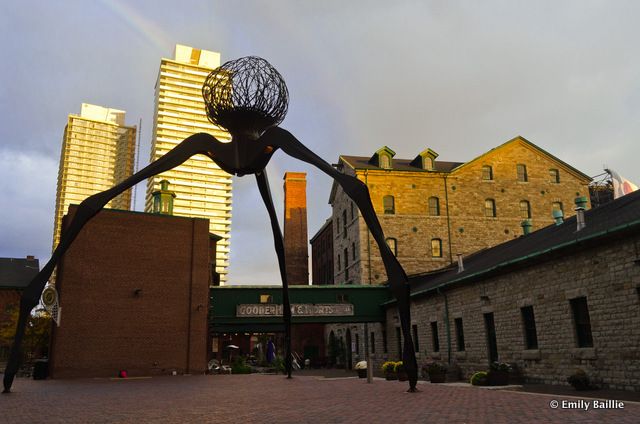
The stone distillery is the oldest surviving building in the district. Composed of Kingston limestone, the building was parallel to the original waterfront. The stone distillery housed three related functions: milling, fermenting and distilling, and was supported by an engine room and boiler houses.
The Pure Spirits complex contains seven buildings constructed in 1873 for alcohol purification and storage. Stills were located in the front sections of the structure on Trinity Street, while storage tanks were located in warehouses behind. Given the potentially explosive nature of the purification process, the Pure Spirits buildings contain large amounts of glass that would blow out to save the buildings.
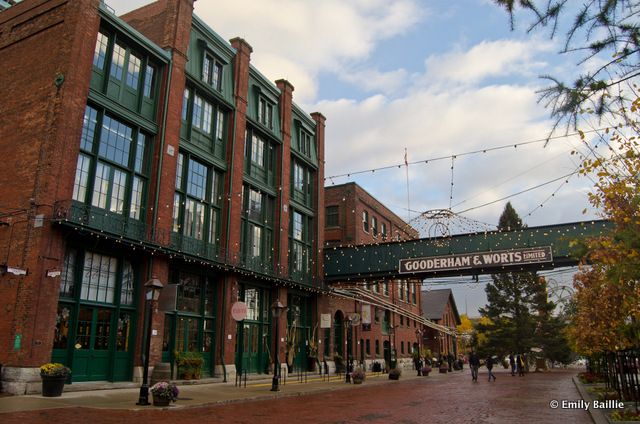
Though the distillery eventually stopped making whisky in the late 1950s, it carried on producing rum and industrial grade alcohol until 1990. During the ’90s, the Distillery found a second life as the number one film location in Canada, and the second largest film location outside of Hollywood.
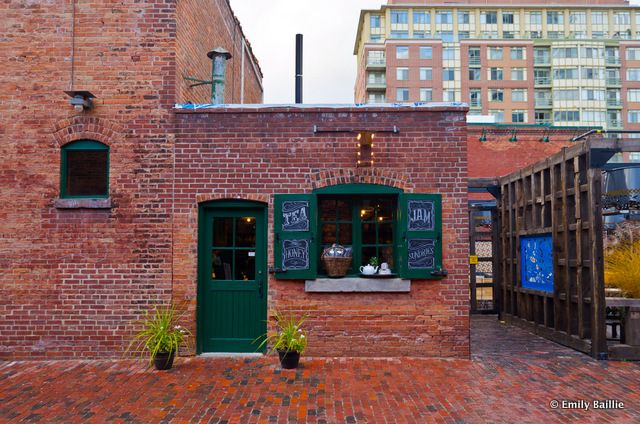
In 2003, the dream of a group of Toronto-based developers was realized. Cityscape Holdings Inc. and Dundee Realty Corporation had a vision to “combine the romance and relaxing atmosphere of European walking and patio districts with the hip, cool dynamic of an area like New York City’s SoHo or Chelsea, where creative minds get together and you feel as if anything could happen.”
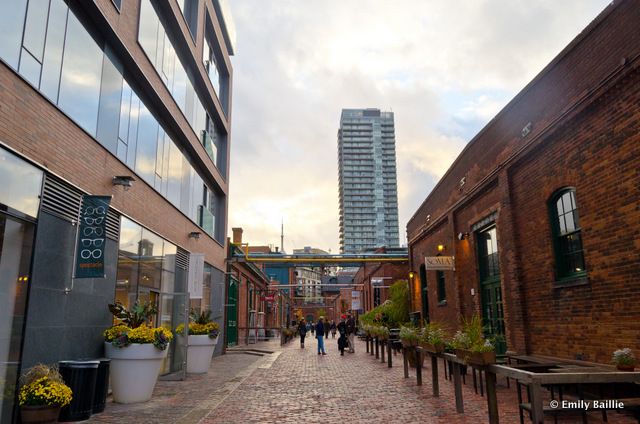
The Distillery District was officially reopened to the public as an entertainment and historical district in 2003, and soon became one of Canada’s top tourist attractions. More than 80 independent design shops, cafes, restaurants, bars and art galleries found homes inside the former distillery buildings, which were carefully restored by hundreds of tradesman. A traditional outdoor European Christmas market attracts hundreds of thousands of visitors each holiday season. Unique street sculptures and fresh greenery decorate the old cobblestone streets.
The Distillery District’s Victorian industrial architecture was seamlessly blended with today’s modern materials and green technologies. Many of the buildings feature post and beam finishes, amazing natural light and expansive ceilings. The district has become an inspired blend of Victorian Industrial architecture and stunning 21st century design and creativity; a unique fusion of old and new.
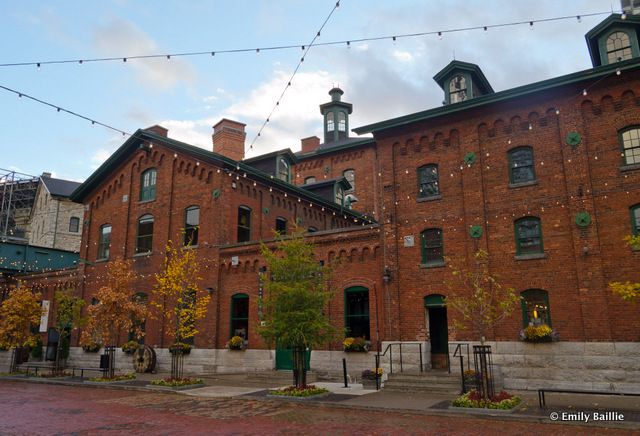
Get in touch with the writer/photographer on Twitter @EmilyBaillie.

